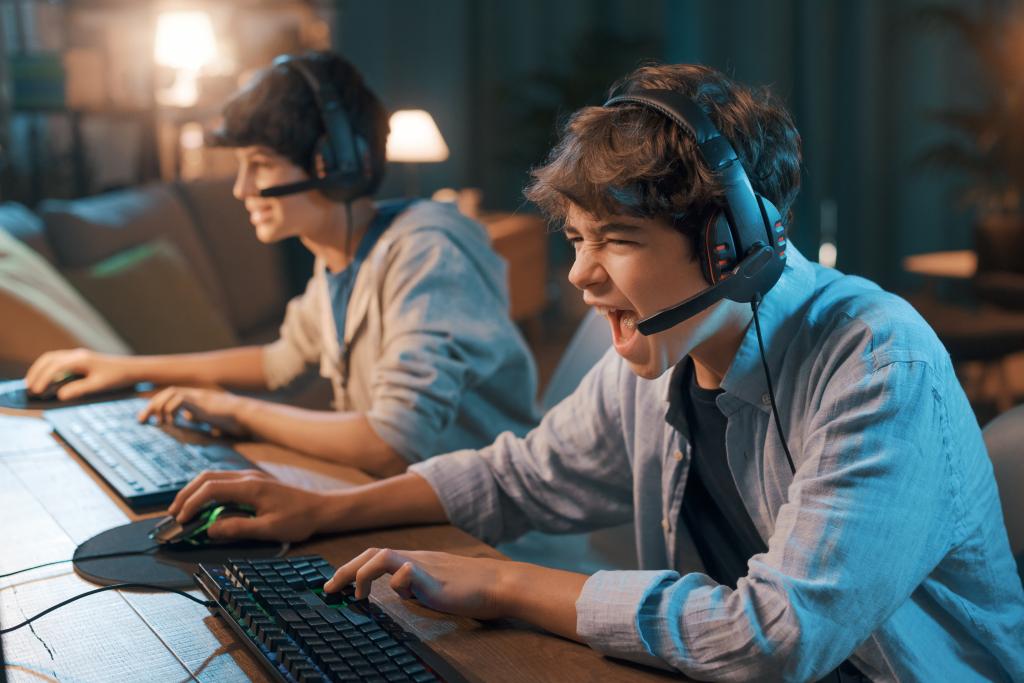It’s “game over” for these violent young men.
Fed-up parents of male video game addicts are turning to trained professionals to help their kids kick the habit.
Dr. Henrietta Bowden-Jones has treated hundreds of teenage boys since the UK’s taxpayer-funded National Health Service opened its very own gaming disorders center in London in 2019.
Bowden-Jones says several of her patients have violently attacked parents who cut off access to popular games such as “Fortnite” and “Call of Duty.”
“By the time they see us, parents have tried everything,” the psychiatrist told the UK’s Times on Monday. “Their immediate response is to take everything away — take the gaming console, the laptop, the phone — which leads to aggression and violence, both in terms of the child to the parents and the child to siblings. Once violence takes place, it’s a traumatized family.”

“Sometimes out of frustration, the child is self-harming. I have seen a couple of children trying to strangle themselves with their own hands, saying they’d rather be dead than not game,” Bowden-Jones continued.
She says some video game addicts play up to 14 hours a day, skipping school and going without sleep to feed their addiction.
“They get caught into a global gaming culture that never stops,” Bowden-Jones explained, adding that video games can “take over their whole brain.”
“These are children who don’t brush their teeth, who don’t shower for months on end,” she said.
The average age of video game addicts referred to the gaming disorders center is 17, according to the Times report.
The gamers usually receive 12 sessions of cognitive behavioral therapy, with the aim of limiting the amount of time they play video games to around two hours a day.
Bowden-Jones doesn’t advise cutting off video games entirely, saying that tactic rarely results in long-term success.
Instead, the addicts must learn to restrict their game-playing time to a manageable and healthy level while pursuing other hobbies and reengaging with schoolwork.

The Times interviewed one mom, identified only as Lisa, who said she sought treatment for her son, Ryan, at the center.
“He was 12 when I first noticed gaming was becoming a problem, and it got worse during lockdown,” Lisa explained. “He would be gaming 24/7 if he had his way.
“Ryan became very aggressive. He would get very angry with the person he was gaming against online,” the mom continued. “He’d come off the game, but still be really wound up, and we were in the ricochet … He was gaming on his PlayStation, laptop, phone, whatever he could get his hands on. We tried everything, putting restrictions on the Wi-Fi or taking away devices, but nothing worked.”
Ryan, now 14, has reportedly reduced his gaming and is “no longer aggressive” after attending the cognitive behavioral therapy sessions. Lisa said speaking with other worried parents at the gaming disorders center made her feel less alone.
Video game addiction is not just confined to the UK. It was classified as a mental health condition in 2019 by the World Health Organization.
The Post has previously reported on the perils of the compulsion, with some people saying it destroyed their careers and ruined their marriages.
Treatment facilities have been set up across the US, including ReStart, an in-patient center in Redmond, Washington, run by mental health counselor Hilarie Cash.

“They come in in bad physical shape,” Cash told The Post of her patients in 2018. “They’re often extremely underweight and, if they’re not underweight, they’re overweight. They’re not sleeping enough, and all of that adds up to being very depressed.”
“We try to help them become fully functional human beings,” she stated.
𝗖𝗿𝗲𝗱𝗶𝘁𝘀, 𝗖𝗼𝗽𝘆𝗿𝗶𝗴𝗵𝘁 & 𝗖𝗼𝘂𝗿𝘁𝗲𝘀𝘆: nypost.com
𝗙𝗼𝗿 𝗮𝗻𝘆 𝗰𝗼𝗺𝗽𝗹𝗮𝗶𝗻𝘁𝘀 𝗿𝗲𝗴𝗮𝗿𝗱𝗶𝗻𝗴 𝗗𝗠𝗖𝗔,
𝗣𝗹𝗲𝗮𝘀𝗲 𝘀𝗲𝗻𝗱 𝘂𝘀 𝗮𝗻 𝗲𝗺𝗮𝗶𝗹 𝗮𝘁 dmca@enspirers.com


